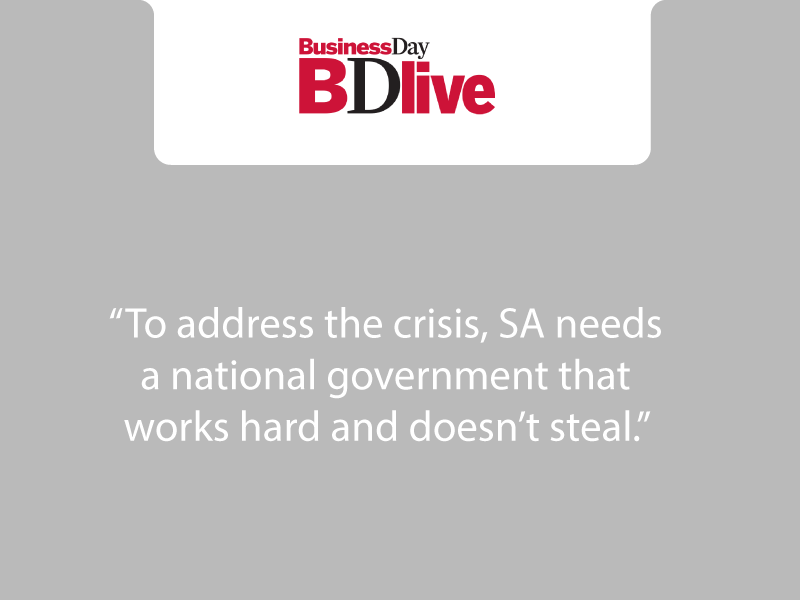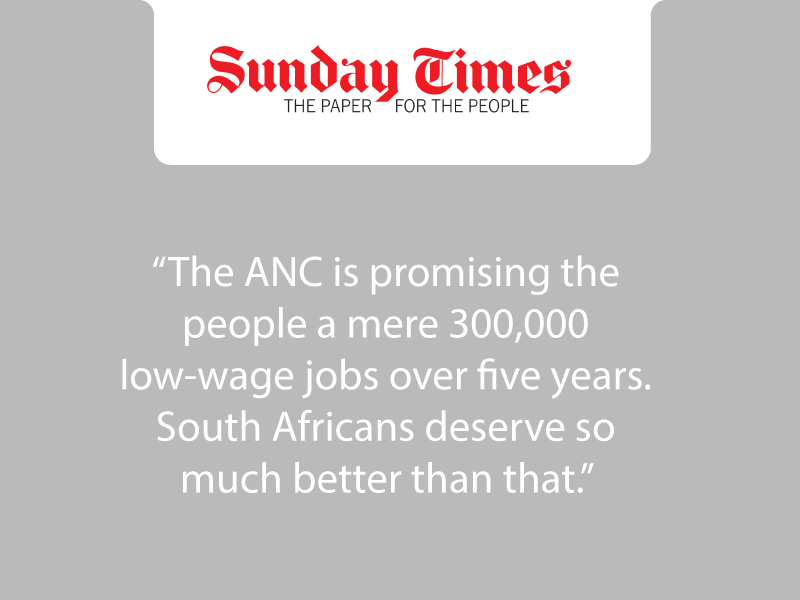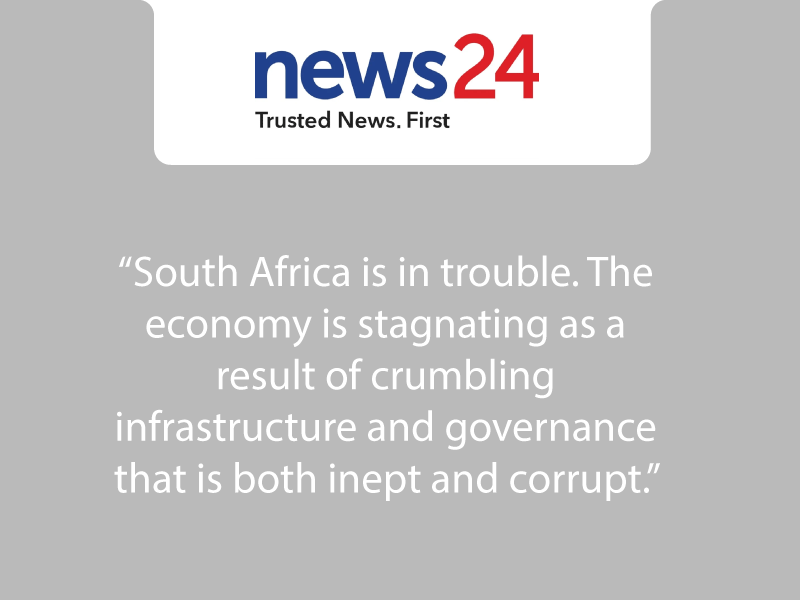 SA’s growth path must become more labour-intensive — and wages matter for employment acceleration.
SA’s growth path must become more labour-intensive — and wages matter for employment acceleration.
In the run-up to the presidential jobs summit, the big question was whether the impact of the commitments that would emerge would accord with the scale of SA’s unemployment crisis. Would it deliver the “extraordinary measures” needed to address the most pressing social crisis?
These measures are needed because SA’s unemployment crisis is vast: nearly 10-million adults who want to work cannot find any, and the rate at which jobs are created is so slow that unemployment queues have increased by an average of nearly 900 people every single day over the past 10 years. Worst of all: the number of young people in jobs has declined over the past decade.
The main reasons for this are set out in the opening section of the jobs summit agreement. Growth has been too slow; has been capital- and skill-intensive in character; and has failed to create the kinds of jobs needed to absorb the large numbers of job-seekers who received sub-standard education at largely dysfunctional schools. Add to that the limitations of SA’s skills-production machinery, the ratchet-like tightening of labour market regulations, and the raising of minimum wages, and the necessity for “extraordinary measures” becomes apparent.
So, given the depth of the crisis, did the jobs summit deliver interventions that might move the dial? Unfortunately, the provisional answer to this question must be “no.” This is despite most of the initiatives announced at the summit being positive and desirable.
Agreement proposals
The agreement proposes a veritable raft of measures, large and small, across multiple sectors of the economy, including R100bn in financing for black business development to a 100-worker clothing factory in the Eastern Cape.
Some of these have been announced before, others are new, and some are barely developed. Most seem positive (though final judgment will have to be deferred until more detail is available and the cost, quality and impact of implementation is assessed).
There are exceptions to this generally positive assessment. What, for example, can be expected of government-appointed experts who advise distressed companies facing the prospect of closure or retrenchment? How does the commitment to “no retrenchments in the public sector” impact the deepening fiscal crisis in state-owned enterprises and the public sector? Nonetheless, the overall judgment stands: on their own terms, the individual initiatives seem mostly worth doing.
The problem, however, is that the plethora of initiatives lacks a coherent strategic focus. Taken as a whole, they reflect an approach to reform that assumes SA’s challenges can be resolved by fine-tuning the performance of individual companies, sectors and value chains. They are premised on the idea that with enough bits and pieces — a subsidy and working group here; a training initiative and smallish fund there — economic and employment growth are bound to accelerate.
This kind of policy fine-tuning, however well-conceived and however well-executed, is very unlikely to weaken the many distortions that hobble the economy as a whole and the labour market in particular. If SA is to see much faster economic and employment growth, many policies need to be overhauled, not fine-tuned.
How one responds to the jobs summit, then, depends on whether you believe fine-tuning or policy overhaul is required.
Fine-tuning vs overhaul
It is, of course, possible that the social partners know all this, but believe that political constraints make overhaul very difficult because achieving agreement on what to do is hard and imposing the right mix of policies risks political and economic disruption. If this is the case, then the summit may have delivered as much as might reasonably be expected from such a process. The price of this is brutal, however: without fundamental reform, SA will remain trapped in a stagnant economy and massive unemployment.
The cost of setting high minimum wages and standards that all employers must meet is that too few jobs are created. Real reform would include exempting small and newly created companies from many current regulations, including the imminent national minimum wage. It would also include making SA a competitive place for light manufacturing to attract the many jobs leaving China.
Creating an environment in which companies are able and encouraged to create large numbers of low-skilled jobs is the single most important step SA could take to make its growth path more inclusive.
The agreement’s 10-year extension of the employment tax incentive is the only meaningful measure to reduce the cost of employment. And it would have been better if the incentive had been extended to a broader range of low-wage workers. This is especially so in light of the pending implementation of the national minimum wage.
That said, the jobs summit made some advances, and could open up the possibility of more meaningful movement later. Business representatives are encouraged that the mood of engagement with the government is a vast improvement on what has prevailed over the past few years. The establishment of a presidential jobs committee promises that employment growth will receive greater priority than hitherto.
According to the agreement this committee will “urgently” deal with a range of issues, including the immigration regime. This opens up some space and business should certainly push for fundamental reform with respect to skilled immigration — not just fine-tuning but far-ranging reforms that would affect the entire economy not only large firms.
SA’s growth path must become more labour-intensive, the country must become a more competitive place in which to do business and wages matter for employment acceleration. There are real limitations to what can be expected of the plethora of initiatives and actions that have been agreed.
Tinkering with what we have will not suffice. SA must seize the thorny issue of fundamental reform sooner rather than later if we are to achieve faster growth and millions more jobs. This will require bold leadership and skillful political management.
• Bernstein is executive director of the Centre for Development and Enterprise.




